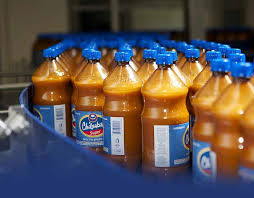The closure of bars during the peak of Covid-19 has seen sorghum beer volumes for listed Delta Corporation Limited dip by more than 30 percent, according to the beverages giant’s latest trading update.
The performance of many companies was severely affected by lockdowns imposed by many governments across the globe during the first quarter of the year as part of measures by authorities to curb the spread of the Covid-19 pandemic.
“In Zimbabwe, the sorghum beer volume declined by 31% compared to same period last year due to the limited access to key trade channels such as bars, bottle stores and the rural markets during lockdown particularly in the first quarter,” said the company board chairman, Canaan Dube, in a statement accompanying the group’s financial results for the six months ended 30 September.
“The value chain costs escalated more rapidly in response to the impact of the depreciating exchange rate on imported brewing cereals and packaging materials. Sorghum beer volume at Natbrew Plc (Zambia) grew by 8% compared to the same period last year.”
The “nascent” volume recovery, Dube said, was attributed to the improved appeal of Chibuku Super.
“There remains significant competitive pressure from the illegal trading in bulk beer, compromising the business recovery efforts,” he bemoaned.
“The South Africa entity, United National Breweries, was largely closed for the first four months as authorities implemented very strict prohibitions on the sale and consumption of alcohol under the Covid-19 lockdown measures. Currently, alcohol sales are only permitted four days a week excluding weekends.”
However, Lager beer volume grew 3% compared to the same period last year.
“This reflects a growth of 18% in the second quarter, reversing the sharp decline recorded in the first quarter when the Covid-19 restrictions were at their peak,” said Dube.
“The volume recovery is underpinned by competitive pricing and consistent supply. The volume is currently skewed in favour of the mainstream brands and larger packs due to changes in consumption occasions and settings.
The sparkling beverages volume, Dube said, also grew by 22% over last year, albeit from a low base.
“The business continues to recover market share on the back of consistent product supply and competitive pricing,” he said.
“There was a swing in volume towards non-returnable take home packs, reflecting the reduced out of home activity due to Covid-19 restrictions.”

